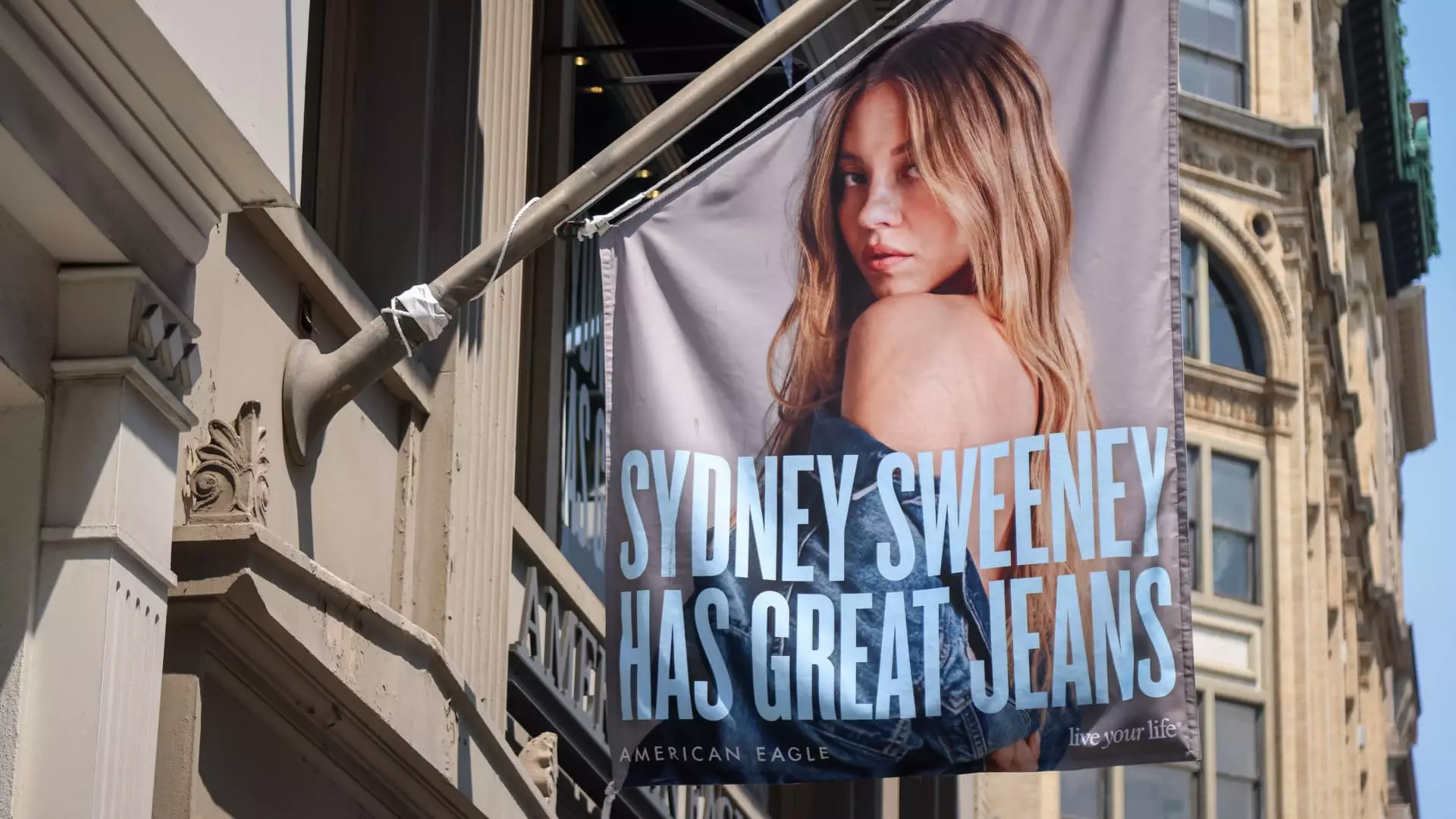In today’s hyper-polarized society, brands are increasingly taking political stances—sometimes with reckless abandon—believing that aligning with cultural narratives is a surefire way to boost sales and relevance. Yet, this approach is a double-edged sword. American Eagle’s recent campaign involving actress Sydney Sweeney underscores the perilous waters companies navigate: trying to capitalize on cultural battles can easily lead to missteps, consumer alienation, and a skewed perception of authenticity. The company’s gamble to feature Sweeney and its subsequent backlash exemplify how superficial marketing fueled by political or cultural signals often disappoints, revealing more about societal divides than genuine brand values.
American Eagle’s decision to promote Sweeney’s campaign using a slogan as simple as “Sydney Sweeney has great jeans” ignited a social media firestorm—not because of the product, but due to underlying ideological tensions. The brand’s choice to lean into what appeared like straightforward advertising was immediately scrutinized for potential double entendres, racial insinuations, or being out of touch with modern social norms. On the surface, the campaign seemed to be just about jeans; beneath, it exposed the larger issue of marketing that relies too heavily on provocation, risking alienating core demographics or appearing insincere.
This spectacle exposes how ineffective and potentially damaging it can be when brands think that superficial signals—like celebrity endorsements or catchy slogans—are enough to sway a divided audience. Authentic engagement requires more than political posturing or shock value; it demands a deep understanding of cultural sensitivities and consumer desires. When companies stray from genuine storytelling and lean into controversy for attention, they often cross lines that cost them more than they gain—like lost consumer trust or diminished brand integrity.
Clashing Cultural Narratives and the Perils of Appropriation
The controversy surrounding American Eagle’s campaign also underscores the dangers of cultural appropriation disguised as marketing. Critics argued that the campaign was more about the actress’s physical traits—blonde hair, blue eyes—than about the jeans themselves. This reveals a troubling trend in advertising: superficial idealization based on outdated beauty standards rather than authentic representation or inclusivity.
In our current societal climate, condescendingly treating consumers as naive has serious consequences. When marketing campaigns attempt to capitalize on a perceived “traditional” appeal—particularly within a culture that values diversity and authenticity—they risk being labeled as tone-deaf or even offensive. This complicates the marketing landscape for companies trying to walk the tightrope between appealing to different demographic segments without resorting to stereotypes or superficial tropes.
American Eagle’s silence and vague response, emphasizing the slogan as simply about clothing, fail to quell the wider social critique: consumers increasingly seek transparency, authenticity, and respect. Instead of engaging genuinely with their audience, brands that rely on superficial tactics risk being seen as out of touch or manipulative, which can erode loyalty in the long run.
Strategic Missteps in a Changing Consumer Landscape
The American Eagle fiasco isn’t an isolated incident; it’s symptomatic of a broader failure to understand the evolving consumer landscape. In an era where social media can make or break brands overnight, companies are often tempted to nudge the cultural needle for quick attention rather than cultivating a consistent, values-driven approach.
The fallout from American Eagle’s campaign also exposes how the political polarization of recent years complicates brand positioning. Trying to appeal to a “right-leaning” audience by aligning with traditionalist aesthetics or anti-woke sentiments can backfire, especially when paired with culturally sensitive issues. Conversely, diving into progressive or woke themes without genuine commitment has already shown to alienate broader segments, as seen with some controversial corporate products or campaigns.
Furthermore, the timing of American Eagle’s campaign amid sales struggles demonstrates how superficial marketing efforts can distract from underlying operational issues like inventory mismanagement or macroeconomic headwinds. Despite brief spikes in search interest or social chatter, such fleeting attention does little to solve fundamental problems—unless it’s backed by authentic, consistent brand values.
In reality, a successful marketing strategy in today’s climate demands nuance rather than brute-force gestures. Brands need to recognize that consumer loyalty is built on trust, not on who can shout the loudest or adopt the most provocative stance. The risk is permanent damage when superficial signaling overrides genuine engagement, and American Eagle’s experience serves as a cautionary tale of how not to navigate this complex terrain.


Leave a Reply